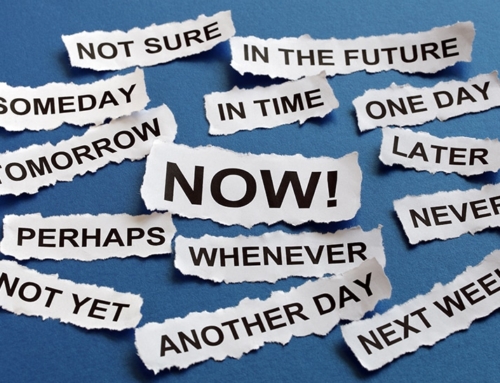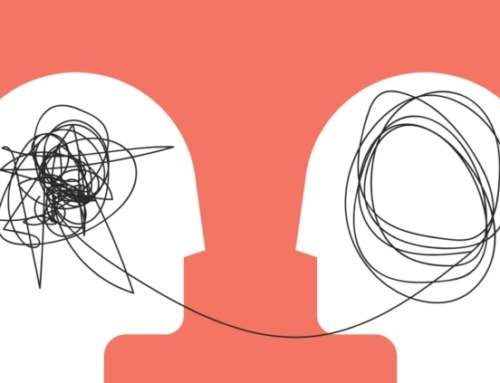Sorry for the obscure title of this essay. Once I explain, I hope you’ll agree that what I’m referring to is a useful concept and that the name for it is apt. A horizon is the outside boundary of one’s experience, including what one attends to, thinks about, feels, and acts upon. So, a horizon of concern is all that arises in consciousness that is highly meaningful and emotionally charged to a person. These salient concerns form a frame through which ongoing experiences are perceived and that further confirm and strengthen that frame of experience. For example, a person who is already highly anxious will be attuned to perceive events in their own life, in the lives of family and friends, and in what they read or see of the world, in ways that confirm them in their beliefs and further, their feelings of anxiety, vulnerability, and threat. This is a form of confirmation bias, one that is highly emotionally charged.
So, when a person is in the midst of a mental health crisis, topics of concern, when they are a focus, can trigger or exacerbate all manner of dysphoric thoughts and feelings: anxiety, worry, sadness, helplessness, hopelessness, unworthiness, anger, overwhelm, shame, guilt, resentment and many others. They can also trigger posttraumatic flashbacks, memories, nightmares, psychotic breaks, dissociative episodes, panic attacks, regression, acting out, suicidal crises, and more.
I developed this concept of the horizon of concern when, back in the day, I worked as the medical director of the Partial Hospital program in my university department. As medical director I often had to emergently treat and triage the patients there. My goals were to 1) keep the patients safe, especially from self-injury and suicide, 2) get them or keep them on the path to recovery, and 3), preferably, keep them out of the hospital.
I really liked that job. I had a high degree of clarity on my goals and this clarity gave my interventions and interactions with patients great clarity too. I would meet with patients briefly but frequently, usually every day. The focus of my mini-assessments was to ensure the patients were able to make it through safely overnight, from the time they left the program in the afternoon until the next morning. The hardest, most fraught day was Friday. I then had the harder task of ensuring they could make it through the weekend until Monday morning. And the most challenging assessments were those preceding holiday weekends: the duration of separation was greatest and, as a result, so was the risk of a bad outcome during that time away from the program.
What I found is that many patients, all of whom were already highly symptomatic, engaged in thoughts that placed them at risk of further decompensation, hospitalization, and/or self-injury. For example, a common area of attention among patients was their childhood, one often punctuated with maltreatment and abuse. Another area of focus was about their futures, sometimes as far out as how this episode of illness would impact their retirement.
When patients volunteered or endorsed their focus on such topics of concern, my response to them took the following form: “The things you’re telling me about are important, very, very important. But now is not the best time for us to talk about them nor even for you to think about them. The more you think about them now, the more overwhelmed you will become. You are not at your strongest now and your symptoms are high. Let me ask you: how do you feel when you think about [whatever the person’s area of concern was]?”
Invariably the patient would say that thinking about these topics made them feel worse. Answers I received were like this one: “Yeah, when I think about what happened to me as a child is when I want to kill myself.”
I would continue: “Yes, you went through some terrible things. Those experiences and how they affect you even today can and should be talked about. There are ways to soften their power to affect you now in these hurtful ways. But our job today, together, is to keep you safe and getting stronger. And, for now, it is best to not dwell on the painful things. If these thoughts come up, then they come up. But you don’t need to feel the need to keep them alive and dwell on them. I know there is often a feeling that these important topics need to be thought and the feelings felt. This is true. But there is a right and wrong time to dwell on them. The right time will be when you are stronger and able to handle them. I don’t need to tell you that thinking about those painful experiences is not easy.”
If needed, I would continue: “Right now, the goal is to keep you safe and getting better day by day. Our focus is on what do you need to do tonight and to make it back here to see me tomorrow. As you get better, we’ll expand our focus to think about a whole week at a time. And this way of expanding our view will continue. When you’re feeling stronger still, then we’ll talk about how you can safely leave this program and continue to get better in regular outpatient treatment. Once you are in therapy, that will be a good time to start exploring when and how you can best focus on your experiences of childhood abuse and make them have less of a hold on you now.”
What may have become clear about the horizon of concern is that it has a temporal dimension. Often people wish to focus too far on the past and too far in the future, beyond what they can handle at the moment without risking further decompensation. This is where the aphorism “one day at a time” holds sway. There comes a time when one can expand the time horizon of concern to a week, a month, or a lifetime, and sometimes the horizon should stay limited to “one day at a time.”
There is a second method, one that entails making conscious efforts to narrow what one attends to. This means taking steps such as to avoid interacting with, reading, or listening to certain people who increase one’s dysphoria, such as people on one’s social media feeds. It may mean cutting out or dialing back on consuming the news which, of course, is nearly always negative and that easily provokes anxiety or despair. This approach sets the conditions for what one is exposed to. Of course, a person in a mental health crisis already has many self-generating dysphoric thoughts and feelings. It is not wise, therefore, to increase their burden of dysphoric input with outside sources, ones often specifically designed by social media companies to trigger strong negative emotions. This approach of setting conditions by avoiding certain people, news, and situations in order to decrease the attentional input of negativity is analogous to a person not buying cookies when they want to lose weight: if in the first place there are no cookies in the pantry or fridge, the person is much less likely to consume them.
So, as for our patients, so for us: we must choose wisely what we allow into our attentional horizon, for that input affects our thoughts and feelings and those, in turn, affect our life’s eudaimonia, its meaningfulness and happiness.
Thanks,
Dr. Jack
Language Brief
“Worry does not empty tomorrow of its sorrow; it empties today of its strength.”― Corrie Ten Boom
Morality is not the doctrine of how we may make ourselves happy, but of how we may ourselves worthy of happiness.” ― Immanuel Kant
“Attention is vitality. It connects you with others. It makes you eager. Stay eager.”― Susan Sontag
“The beauty and mystery of this world only emerges through affection, attention, interest and compassion.” ― Orhan Pamuk
“The ultimate end of human acts is eudaimonia, happiness in the sense of living well … All acts are but different means chosen to arrive at it.” ― Hannah Arendt







Leave A Comment